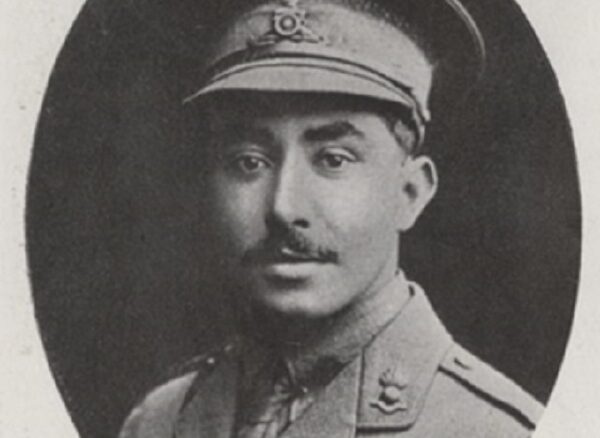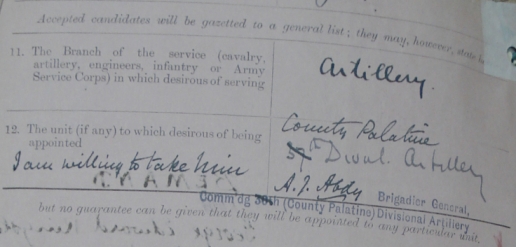
Born in Jamaica, George was the eldest of four children born to a white father, George, and a black mother, Minnie. In 1908 Minnie and the children came, via New York, to England, on the Lusitania, to join George Bemand (senior) at Upper House Farm, near Leominster. Geroge was sent to Dulwich College where he was a boarder in Ivyholme, and in his final year he was a member of the 2nd XI cricket team. From Dulwich he went on to University College London, where he studied engineering.

Shortly after the First World War began, he joined the London University Officer Training Corps, and in May 1915 was granted a commission in the Royal Field Artillery – making him one of a very small number of Black officers in the British Army at that time. Though of mixed race, when George enlisted in 1914, he stated that he was of ‘pure European descent’. After finishing his training, he became a second lieutenant in the Royal Field Artillery in May 1915, before being sent out to France in November of 1915, and spent a year serving with the Ammunition Column, 148 Brigade.
In October 1916 he was transferred to the Trench Mortar Battery, 5th Division. He was killed in action on Boxing Day 1916. His younger brother Harold, who like George had attended Dulwich College, served in the ranks as a Gunner in the Royal Field Artillery and died of wounds in Belgium in 1917 at the age of 19.
As the nation’s largest Armed Forces charity, the Royal British Legion (RBL) is dedicated to ensuring that all those who served and sacrificed, and who continue to do so, in defence of our freedoms and way of life, from both Britain and the Commonwealth, are remembered.
In our acts of Remembrance, the RBL remembers,
- The sacrifice of the Armed Forces community from Britain and the Commonwealth.
- Pays tribute to the special contribution of families and of the emergency services.
- Acknowledges the innocent civilians who have lost their lives in conflict and acts of terrorism.
The story of Black British and Black African and Caribbean service and sacrifice is one that we are keen to share, a story of men and women who have done so much in defence of Britain and in protecting all our citizens. A story that is replete with stories of bravery and courage, as epitomised by Victoria Cross winner Johnson Beharry.
 Therefore, to mark 100 years since Britain’s current Remembrance traditions first came together, the RBL has bought together over 100 stories of British and Commonwealth African and Caribbean service and sacrifice. The stories range from the First World War to the present day and are of servicemen and women from across Britain, Africa and the Caribbean, representing both the armed forces and emergency services.
Therefore, to mark 100 years since Britain’s current Remembrance traditions first came together, the RBL has bought together over 100 stories of British and Commonwealth African and Caribbean service and sacrifice. The stories range from the First World War to the present day and are of servicemen and women from across Britain, Africa and the Caribbean, representing both the armed forces and emergency services.
The RBL wishes to offer special thanks to Stephen Bourne for his help in putting these stories together. Stephen Bourne has been writing Black British history books for thirty years. For Aunt Esther’s Story (1991) he received the Raymond Williams Prize for Community Publishing. His best-known books are Black Poppies (2019) and Under Fire (2020). His latest book Deep Are the Roots – Trailblazers Who Changed Black British Theatre was recently published by The History Press. For further information about Stephen and his books, go to his website www.stephenbourne.co.uk
